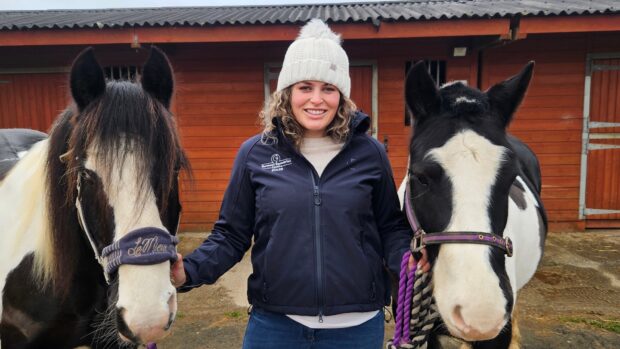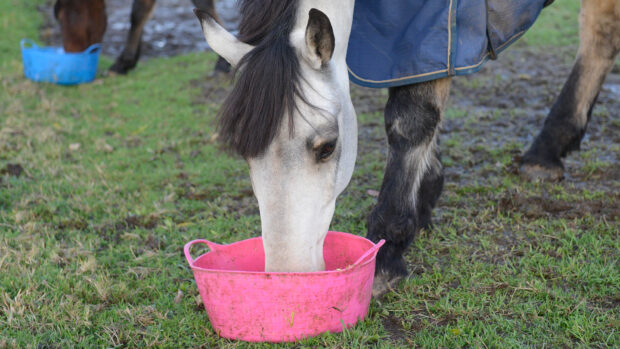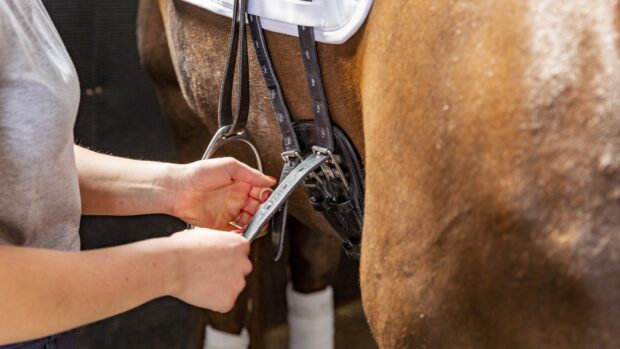Concerns have been raised about continued “misinformation” being shared in the horse world – and the “very real threat” this poses to equine welfare.
The British Equestrian Trade Association (BETA) said false information is a “known phenomenon” on social media, and highlighted that the safety and suitability of feed ingredients, and topical applications such as fly repellents, get “a lot of attention”.
“It is causing confusion and uncertainty among owners who are receiving factually incorrect advice in a range of areas,” said a BETA spokesman.
“In conditions where medicines and treatments may not always be effective, owners understandably seek alternative solutions and may be tempted by exaggerated product claims. The irony is often that ingredients that are generally safe attract negative attention because information from studies is taken out of context.”
BETA chief executive Claire Williams told H&H that on social media “everyone seems to be an expert”, so people are taking advice online instead of contacting qualified nutritionists or vets.
“It’s a concern because when people don’t follow the right information, they could potentially end up harming their horses instead of helping them,” she said. “If someone claims to be an expert, it’s not surprising people believe what they’re told. It’s ensuring that people go to sources that they can trust, and that those people have the appropriate qualifications.
“Our manufacturers and members are controlled by a lot of legislation and they do their very best to place products on the market that are appropriate and safe, so we get worried when people take advice on social media and decide to feed something that may not be safe.”
Clare Barfoot, nutritionist and Mars Horsecare marketing and research and development director, told H&H some common myths around feed ingredients include that soya and alfalfa are bad for horses prone to gastric ulceration – when studies have proven this to be untrue.
“Now that we live in this world of social media, misinformation circulates a lot quicker than it did before. It’s a bit like wildfire,” she said.
“A nutritionist is not a protected profession, so anyone can say, ‘I’m a nutrition expert’. These people may be giving their personal opinion or they’ve read an article or scientific paper and misinterpreted it, and so they spread a lot of quite scary incorrect information, and it’s a snowball effect.
“Owners want the best for their horses – and when something is wrong they naturally want to seek a solution, so they might go to Google or social media and decide they need to buy X product because it’s going to present a cure. But unless it’s a licensed drug, it can’t.”
Ms Barfoot added that there is also a misconception that “natural always equals good”.
“That’s not always the case,” she said. “Just because something is natural it can still cause a horse harm – or at the very least, people could be wasting money buying products that just aren’t going to work.”
You might also be interested in:

Calls to seek vet advice after owner prosecuted for treating horse with coconut oil

Riders think they know more than they do, research shows
‘This over-confidence can have serious consequences on the welfare of horses, and could affect the mental health of riders’

Gastric ulcers in horses: the important facts every owner needs to know

Subscribe to Horse & Hound magazine today – and enjoy unlimited website access all year round
Horse & Hound magazine, out every Thursday, is packed with all the latest news and reports, as well as interviews, specials, nostalgia, vet and training advice. Find how you can enjoy the magazine delivered to your door every week, plus options to upgrade your subscription to access our online service that brings you breaking news and reports as well as other benefits.




